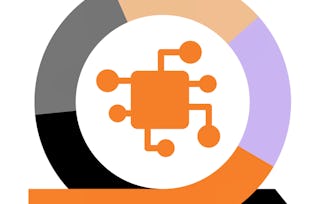This course is designed to help the SE practitioner and Agile practitioner lead engineering teams to success.

Agile Systems Engineering Leadership

Agile Systems Engineering Leadership
This course is part of Agile Systems Engineering Specialization

Instructor: J. Morgan Nicholson
Included with
Recommended experience
What you'll learn
Learn to organize, motivate and lead technical employees
Learn how to build high performing technical teams
Skills you'll gain
Details to know

Add to your LinkedIn profile
October 2025
4 assignments
See how employees at top companies are mastering in-demand skills

Build your subject-matter expertise
- Learn new concepts from industry experts
- Gain a foundational understanding of a subject or tool
- Develop job-relevant skills with hands-on projects
- Earn a shareable career certificate

There are 4 modules in this course
This module introduces foundational theories of human motivation and leadership in systems engineering. It connects classical motivational models—such as Maslow’s Hierarchy, Herzberg’s Two-Factor Theory, and Adams’ Equity Theory—to Agile contexts, emphasizing how leaders can foster engagement, satisfaction, and performance in technical teams.
What's included
7 videos1 assignment
This module examines modern leadership theories and management frameworks that influence team effectiveness. Learners explore McGregor’s Theory X and Y, Blake and Mouton’s Managerial Grid, and various leadership styles to understand how assumptions, influence, and motivation drive organizational culture and performance in Agile environments.
What's included
7 videos1 assignment
This module explores the stages of team development (forming, storming, norming, performing, adjourning) and emotional dynamics that affect performance. It emphasizes the importance of communication, conflict resolution, diversity of thought, and leadership strategies for sustaining high-performing, collaborative teams in complex projects.
What's included
7 videos1 assignment
This module introduces classical and modern organizational theories, comparing bureaucratic, mechanistic, and organic structures. It integrates Agile principles, scientific management, and matrix models to analyze how authority, integration, and culture affect adaptability, collaboration, and innovation in contemporary systems engineering.
What's included
9 videos1 assignment
Earn a career certificate
Add this credential to your LinkedIn profile, resume, or CV. Share it on social media and in your performance review.
Instructor

Offered by
Explore more from Mechanical Engineering
 Status: Free Trial
Status: Free TrialUniversity of Colorado System
 Status: Free Trial
Status: Free TrialUniversity of Colorado System
 Status: Free Trial
Status: Free TrialUniversity of Colorado System
 Status: Free Trial
Status: Free TrialUniversity of Colorado Boulder
Why people choose Coursera for their career

Felipe M.

Jennifer J.

Larry W.

Chaitanya A.

Open new doors with Coursera Plus
Unlimited access to 10,000+ world-class courses, hands-on projects, and job-ready certificate programs - all included in your subscription
Advance your career with an online degree
Earn a degree from world-class universities - 100% online
Join over 3,400 global companies that choose Coursera for Business
Upskill your employees to excel in the digital economy
Frequently asked questions
To access the course materials, assignments and to earn a Certificate, you will need to purchase the Certificate experience when you enroll in a course. You can try a Free Trial instead, or apply for Financial Aid. The course may offer 'Full Course, No Certificate' instead. This option lets you see all course materials, submit required assessments, and get a final grade. This also means that you will not be able to purchase a Certificate experience.
When you enroll in the course, you get access to all of the courses in the Specialization, and you earn a certificate when you complete the work. Your electronic Certificate will be added to your Accomplishments page - from there, you can print your Certificate or add it to your LinkedIn profile.
Yes. In select learning programs, you can apply for financial aid or a scholarship if you can’t afford the enrollment fee. If fin aid or scholarship is available for your learning program selection, you’ll find a link to apply on the description page.
More questions
Financial aid available,

